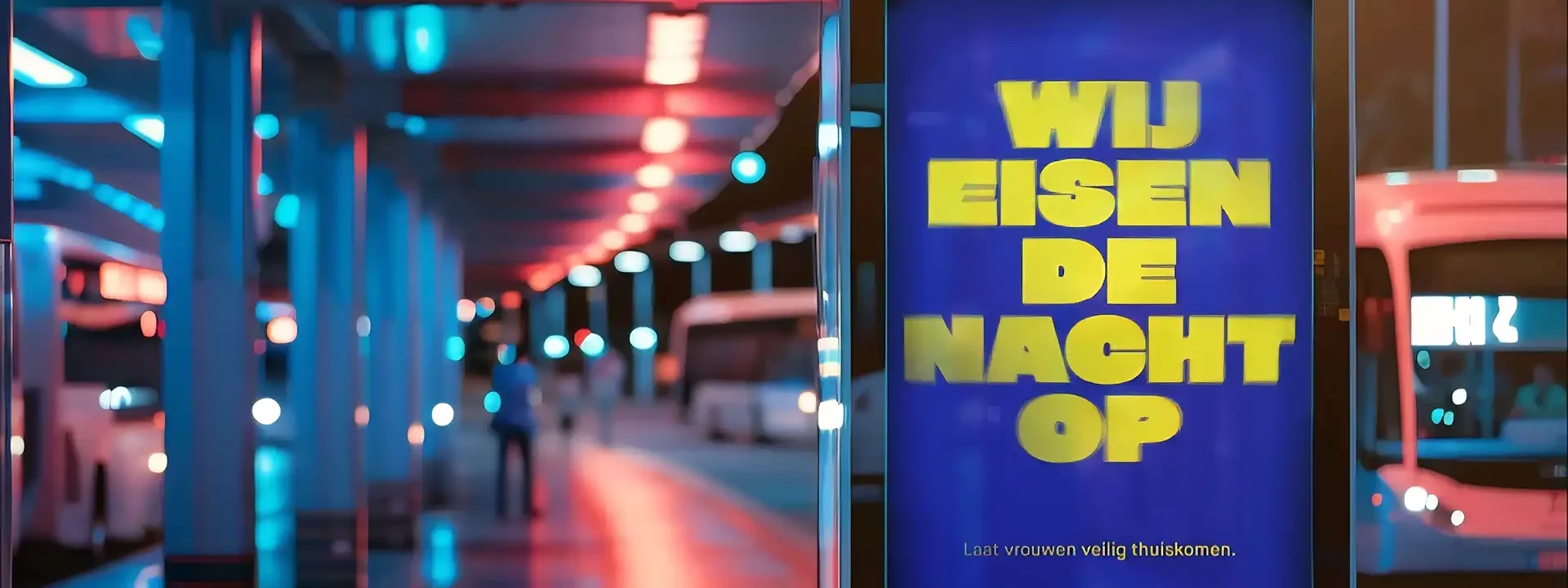

News
"Take Back the Night"
No fewer than four horrific incidents of (sexual) violence against women in a single week, following rising cases of femicide. This news has been deeply affecting and sparked nationwide outrage. This wave of anger and grief sparked the idea for a new national campaign "Take Back the Night." A campaign that makes it clear to everyone: let the night belong to women too. The sentiment has widely echoed: in 48 hours, crowdfunding raised a remarkable €252,440. This money comes from people who, like initiator Danique de Jong (campaign strategist, member of Dolle Mina's), want change, and all of it will be spent on raising national awareness on this issue.
Take Back the Night: 70's Campaign Relevant Again
The campaign builds on "Take Back the Night," a movement from the 1970’s. Take Back the Night originated in 1976, in Brussels, where women organized a nighttime march during an international tribunal investigating crimes against women. A few years later, in 1978, San Francisco, the first major American Take Back the Night demonstration followed the murder of a young woman. Since then, similar marches have continued around the world, in which women and allies demand their right to feel safe. Last week, the Dutch version, "Wij Eisen De Nacht Op," went viral after a social media post by Nienke 's Gravenmade.
Who is behind the campaign?
The campaign was launched by Danique de Jong, a member of the renewed Dolle Mina's and a well-known opinion leader, appearing on Den Haag FM's Vroege Vogels, among others. She's an experienced voice in feminist activism and knows how to get a message across the country loud and clear. "I want the message to reach not just my own bubble, but everyone in the Netherlands, so that women's safety is a topic of conversation in every living room. We want everyone to feel the stark difference between genders. And we especially want to appeal to men: don't look away, speak up, and intervene if you see a woman not being treated safely or respectfully."
Massive support from all over the country
The call to reclaim the night resonates. Within 48 hours, €252,440 has already been raised. Remarkably, over 90% of the donations come from individuals. People from all over the country are donating out of personal outrage. De Jong called with one of the largest individual donors. It turned out to be a nurse who was feeling angry and sad and therefore contributed €5,000 to spread the message nationwide. "A contribution like this and a phone call are a huge boost to our motivation. It makes the fire burn even brighter."
Experts plead for lasting momentum
The money will be used to turn this campaign into a long-term movement. Foundations dedicated to women's rights, victims, and safety, as well as behavioral scientists, psychologists, and communication experts, will be involved. The website wijeisendenachtop.nl will provide a platform to follow the campaign's progress and provide information on how people can take action and/or make a financial contribution. All campaign materials will also be available there. De Jong: "We have the attention now, and we're using it to raise awareness among everyone in the Netherlands. But afterward, we also want to see change. That's why we're already working with a team of volunteers on the next phase. Because once everyone knows what it's like for a woman to cycle home at night, it's time to make it crystal clear how things should be done. What can men do to turn the tide? This campaign is just the beginning. Because only when everyone can go out on the streets, at any time of the day or night, can we speak of true freedom and equality."